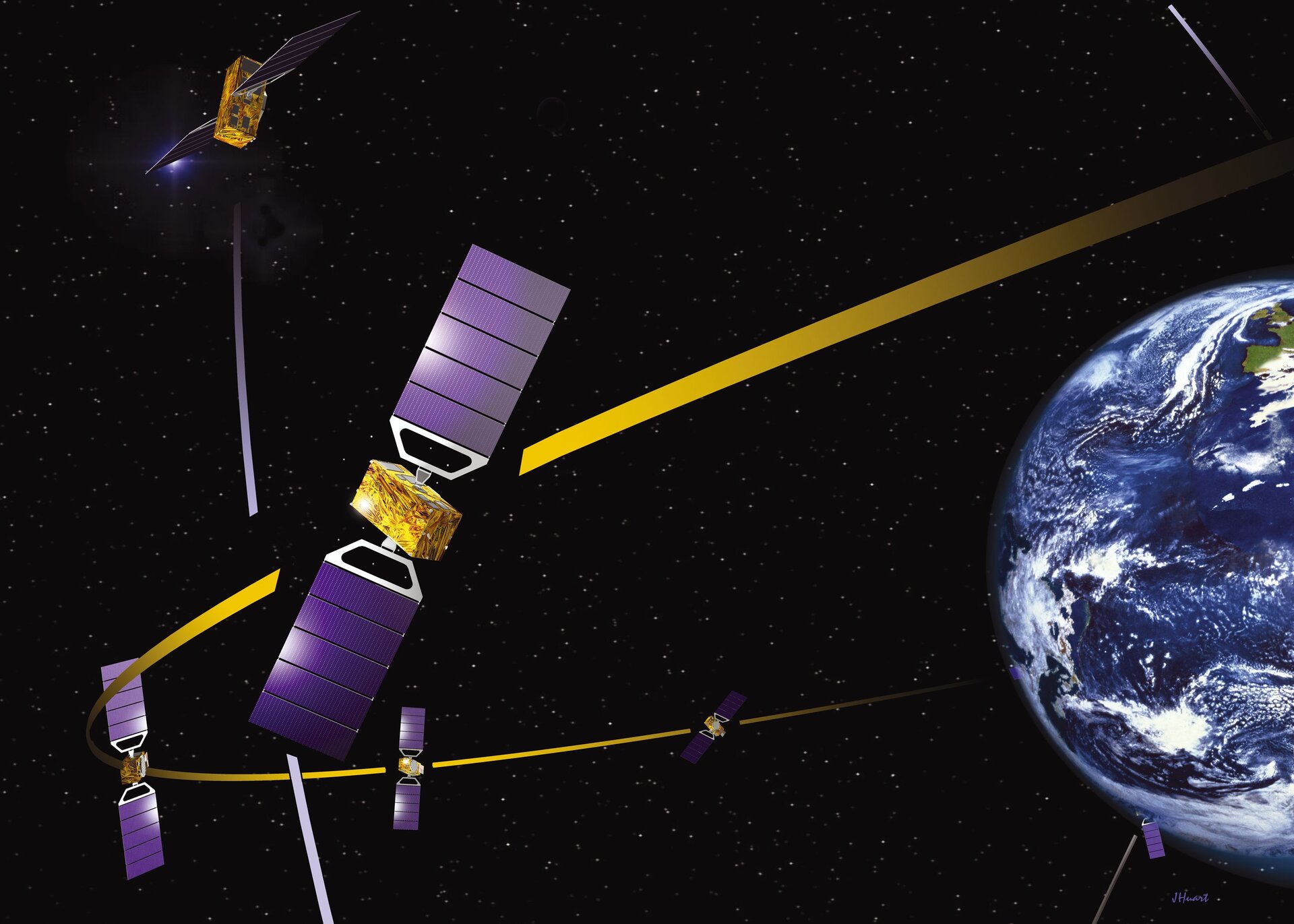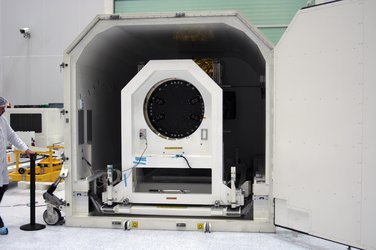Galileo services
As it progressively becomes operational, Galileo will provide a wide range of different navigation and timekeeping services. Galileo will function both as an independent system and in combination with other satellite navigations systems such as GPS, with which it is fully interoperable.
The Galileo System will be an independent, global, European-controlled, satellite-based navigation system and will provide a number of guaranteed services to users equipped with Galileo-compatible receivers.
After the deployment of the four initial satellites of the in-orbit validation phase, the Galileo/EGNOS/GPS combined services will be progressively provided as the rest of the fleet is launched.
The following Galileo satellite-only services will be provided worldwide and independently from other systems by combining Galileo signals-in-space:
- the Open Service (OS) - a combination of open signals, free of user charge, providing position and timing performance competitive with other Global Navigation Satellite Systems. In fact, it will be similar to the open service provided by GPS today.
- the Safety-of-Life Service (SoL) improves the open service performance through the provision of timely warnings to the user when it fails to meet certain requirements for accuracy and integrity. A service guarantee will be provided for this service.
- the Commercial Service (CS) provides access to two additional signals, to allow for a higher data throughput rate and to enable users to improve accuracy. The signals are encrypted. It is envisaged that a service guarantee will be provided for this service.
- the Public Regulated Service (PRS) provides position and timing to specific users requiring a high continuity of service, with controlled access. Two PRS navigation signals with encrypted ranging codes and data will be available.
- Search and Rescue (SAR) Galileo support to the search and rescue service represents the contribution of Europe to the international COSPAS-SARSAT cooperative effort on humanitarian search & rescue activities. Galileo is to play an important part of the Medium Earth Orbit Search and Rescue system (MEOSAR). Galileo satellites will be able to pick up signals from emergency beacons carried on ships, planes or persons and send these back to national rescue centres. From this, a rescue centre can determine the precise location of an incident. At least one Galileo satellite will be in view from any point on Earth, so near real-time distress alerting will be possible. In some cases, feedback could be sent back to a distress beacon, allowing the victims to know that help is on its way - something that is only possible with Galileo.
Open Service (OS)
The Galileo Open Service (OS) is defined for mass-market applications. It provides signals for timing and positioning, free of direct user charge. The Open Service is accessible to any user equipped with a receiver, with no authorisation required. While up to three separate signal frequencies are offered within the Open Service, cheap single-frequency receivers will be used for applications requiring only reduced accuracy. In general, Open Service applications will use a combination of Galileo and GPS signals, which will improve performance in severe environments such as urban areas.
The Open Service does not offer integrity information, and the determination of the quality of the signals will be left entirely to the users. There will be no service guarantee or liability from the Galileo operating organisation on the Open Service.
Safety of Life Service (SoL)
The Safety-of-Life (SoL) service will be certified and its performance will be obtained by using certified dual-frequency receivers. Under such conditions, the future Galileo operating organisation will guarantee SoL. To benefit from the required level of protection, SoL is implemented in the frequency bands reserved for Aeronautical Radio-Navigation Services (L1 and E5).
This service will increase safety, especially where there are no traditional ground infrastructure services. This seamless, worldwide service will increase the efficiency of companies operating on a global basis, such as airlines and transoceanic maritime companies. The EGNOS regional European enhancement of the GPS system will be optimally integrated with the Galileo Safety-of-Life service to have independent and complementary integrity information (with no common mode of failure) on the GPS and GLONASS constellations.
Commercial Service (CS)
The Commercial Service (CS) is aimed at market applications requiring higher performance than offered by the Open Service. It provides added value services on payment of a fee. CS is based on adding two signals to the open access signals. This pair of signals is protected through commercial encryption, which is managed by the service providers and the future Galileo operating organisation. Access is controlled at the receiver level, using access-protection keys.
The uses foreseen for the commercial service include data broadcasting and resolving ambiguities in differential applications. These will be developed by service providers, which will buy the right to use the two commercial signals from the Galileo operating organisation.
Developing commercial applications either by using the commercial signals alone, or by combining them with other Galileo signals or external communications systems, will open a wide range of possibilities. The worldwide coverage will offer a strong advantage for applications requiring global data broadcast.
Typical value-added services include service guarantees, precise timing services, provision of ionosphere delay models, local differential correction signals for extreme-precision position determination and other services based on the broadcast of system information data.
Public Regulated Service (PRS)
Galileo is a civil system that also includes a robust and access-controlled service for government-authorised applications. The Public Regulated Service (PRS) will be accessible only by EU Member States and used by groups such as police, coastguards and customs. Civil institutions will control the access to the encrypted PRS. Access by region or user group will follow the security policy rules applicable in Europe.
The PRS is operational at all times and in all circumstances, including during periods of crisis. A major PRS driver is the robustness of its signal, which protects it against jamming and spoofing.
Search and Rescue (SAR)
The Search and Rescue (SAR) service is Europe's contribution to the international cooperative effort on the humanitarian search and rescue. It will allow important improvements in the existing system, including: near-real-time reception of distress messages from anywhere on Earth (the average waiting time is currently an hour); precise location of alerts (a few metres, instead of the currently specified 5 km); multiple satellite detection to overcome terrain blockage in severe conditions; increased availability of the space segment (30 medium Earth orbit satellites in addition to the four low Earth orbit and the three geostationary satellites in the current COSPAS-SARSAT system).
Galileo will introduce new SAR functions such as the return link (from the SAR operator to the distress beacon), thereby facilitating the rescue operations and helping to reduce the rate of false alerts. The service is being defined in cooperation with COSPAS-SARSAT, and its characteristics and operations are regulated under the auspices of the International Maritime Organization (IMO) and the International Civil Aviation Organization (ICAO).















 Germany
Germany
 Austria
Austria
 Belgium
Belgium
 Denmark
Denmark
 Spain
Spain
 Estonia
Estonia
 Finland
Finland
 France
France
 Greece
Greece
 Hungary
Hungary
 Ireland
Ireland
 Italy
Italy
 Luxembourg
Luxembourg
 Norway
Norway
 The Netherlands
The Netherlands
 Poland
Poland
 Portugal
Portugal
 Czechia
Czechia
 Romania
Romania
 United Kingdom
United Kingdom
 Slovenia
Slovenia
 Sweden
Sweden
 Switzerland
Switzerland
































